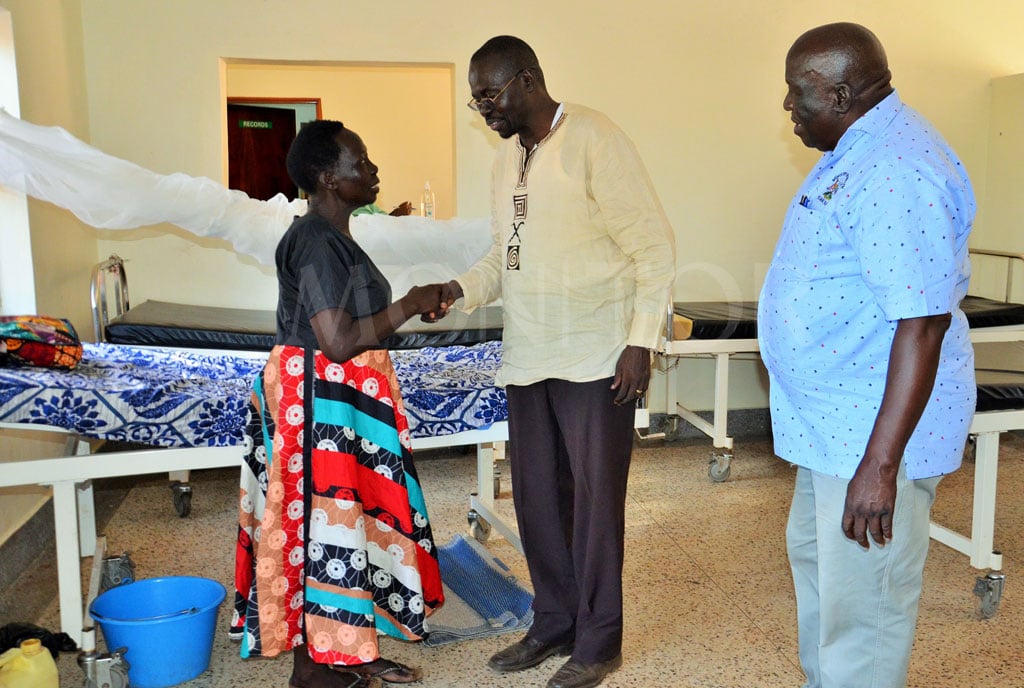New maternity ward in refugee camp eases health burden

Obongi MP Dr George Bhoka (centre) and RDC Matata Buga speak to a patient attendant at Belamenling Health Centre II at the weekend. PHOTO/ SCOVIN ICETA
What you need to know:
- Some of the health centres that were established at the onset of the influx of South Sudan refugees have been operating in tents.
Jinja leaders and residents of Obongi District have said the construction of an outpatient department and maternity ward at Belameling Health Centre II in Palorinya refugee settlement will help ease pressure on other health facilities in the area.
The outpatient department and maternity ward were constructed under the Development Response to Displacement Impacts Project (DRDIP), which covers 11 districts that host the largest number of refugees in Uganda.
The DRDIP desk officer for Obongi, Mr Geofrey Tako, told Daily Monitor at the weekend that host communities and refugees had depended on Obongi Health Centre IV, which is far from Palorinya settlement, leaving it crowded.
He said the new facility will reduce pressure exerted on Obongi Health Centre IV.
Belameling Health Centre has also been equipped with new beddings. Ms Margret Saidia, the in-charge, said during rainy days people could crowd under trees and verandas for lack of an outpatient department.
“We will not be running around to accommodate patients in some of the already crowded wards, especially during rainy seasons like this,” she said.
She added: “We have a catchment population of 18,606, which cannot be admitted under a temporarily structure and before this building, patients were facing challenges of leaking roofs and heat and many other hardships.”
Ms Vicky Kade, a patient, said: “We arrived in 2017 from South Sudan, but the services were not good due to the problems of structures which were discomforting. We used to be admitted in tents structures. This will help us a lot.”
Obongi County MP Dr George Bhoka urged the area leaders and residents to take care of the structures.
He also asked the Ministry of Health to upgrade the facility to a health centre III now that it has new structures.
“Our expectation is that this upgraded facility must be recognised by Ministry of Health as fully operational health centre III with at least two clinical officers, laboratory technician and nurses from the government to add on the existing staff,” he said.
Some of the health centres that were established at the onset of the influx of South Sudan refugees have been operating in tents. But leaders from districts hosting refugees across West Nile resolved that such health facilities be housed in permanent structures.




